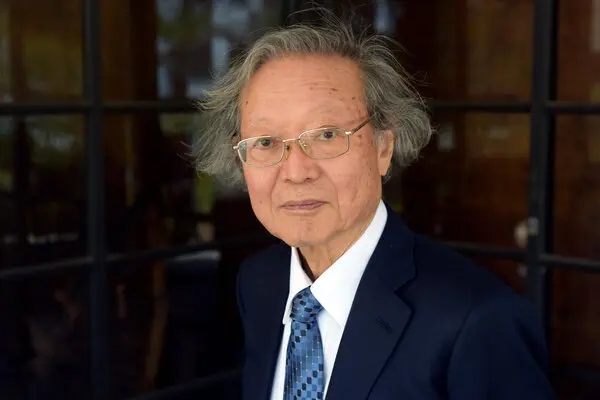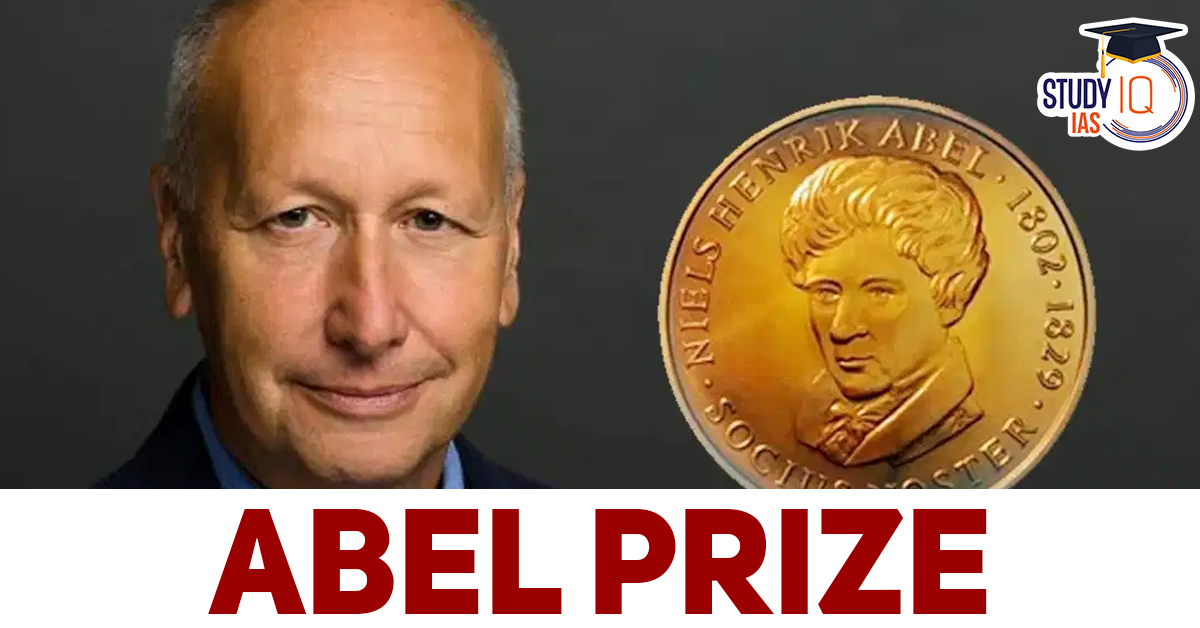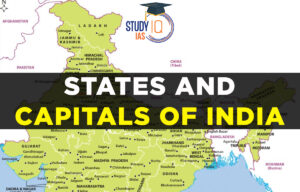Table of Contents
Abel Prize for Mathematics 2025
- The Abel Prize for Mathematics 2025 has been awarded to Masaki Kashiwara, a 78-year-old Japanese mathematician.
- He was honoured for his fundamental contributions to algebraic analysis and representation theory, particularly his development of the theory of D-modules and the discovery of crystal bases.

About the Abel Prize
- Abel Prize is the world’s highest honour in mathematics.
- Named after Norwegian mathematician Niels Henrik Abel (1802-1829).
- It was established in 2001 by the Norwegian government.
- It is Awarded annually by the Norwegian Academy of Science and Letters.
- Abel Prize is considered an alternative to the Nobel Prize, which does not include a category for mathematics.
Abel Prize Winners List from 2003 to 2025
| Year | Name | Discovery |
| 2003 | Jean-Pierre Serre | For playing a key role in shaping the modern form of many parts of mathematics, including topology, algebraic geometry and number theory. |
| 2004 | Isadore M. Singer | For their discovery and proof of the index theorem, bringing together topology, geometry and analysis, and their outstanding role in building new bridges between mathematics and theoretical physics. |
| 2004 | Sir Michael Francis Atiyah | |
| 2005 | Peter D. Lax | For his groundbreaking contributions to the theory and application of partial differential equations and to the computation of their solutions. |
| 2006 | Lennart Carleson | for his profound and seminal contributions to harmonic analysis and the theory of smooth dynamical systems. |
| 2007 | Srinivasa S. R. Varadhan | For his fundamental contributions to probability theory and in particular for creating a unified theory of large deviations. |
| 2008 | Jacques Tits | For their profound achievements in algebra and in particular for shaping modern group theory. |
| 2008 | John Griggs Thompson | For their profound achievements in algebra and, in particular, for shaping modern group theory. |
| 2009 | Mikhail Leonidovich Gromov | For his revolutionary contributions to geometry. |
| 2010 | John Torrence Tate | For his vast and lasting impact on the theory of numbers. |
| 2011 | John Milnor | For pioneering discoveries in topology, geometry, and algebra. |
| 2012 | Endre Szemerédi | For his fundamental contributions to discrete mathematics and theoretical computer science, and in recognition of the profound and lasting impact of these contributions on additive number theory and ergodic theory. |
| 2013 | Pierre Deligne | For his seminal contributions to algebraic geometry and for their transformative impact on number theory, representation theory, and related fields. |
| 2014 | Yakov G. Sinai | For his fundamental contributions to dynamical systems, ergodic theory, and mathematical physics. |
| 2015 | Louis Nirenberg | For their striking and seminal contributions to the theory of nonlinear partial differential equations and its applications to geometric analysis. |
| 2015 | John F. Nash | |
| 2016 | Sir Andrew J. Wiles | For his stunning proof of Fermat’s Last Theorem by way of the modularity conjecture for semistable elliptic curves, opening a new era in number theory. |
| 2017 | Yves Meyer | For his pivotal role in the development of the mathematical theory of wavelets. |
| 2018 | Robert P. Langlands | For his visionary program connecting representation theory to number theory. |
| 2019 | Karen Keskulla Uhlenbeck | For her pioneering achievements in geometric partial differential equations, gauge theory, and integrable systems, and for the fundamental impact of her work on analysis, geometry, and mathematical physics. |
| 2020 | Gregory Margulis | For pioneering the use of methods from probability and dynamics in group theory, number theory, and combinatorics. |
| 2020 | Hillel Furstenberg | |
| 2021 | Avi Wigderson | For their foundational contributions to theoretical computer science and discrete mathematics, and their leading roles in shaping them into central fields of modern mathematics. |
| 2021 | László Lovász | |
| 2022 | Dennis Parnell Sullivan | For his groundbreaking contributions to topology in its broadest sense, and in particular its algebraic, geometric, and dynamical aspects. |
| 2023 | Luis A. Caffarelli | For his seminal contributions to regularity theory for nonlinear partial differential equations, including free-boundary problems and the Monge-Ampère equation. |
| 2024 | Michel Talagrand | For his groundbreaking contributions to probability theory and functional analysis, with outstanding applications in mathematical physics and statistics. |
| 2025 | Masaki Kashiwara | For his groundbreaking contributions to algebraic analysis and the theory of D-modules |


 Top 10 Economies in the World 2025, Chec...
Top 10 Economies in the World 2025, Chec...
 World Veterinary Day 2025: Theme, Histor...
World Veterinary Day 2025: Theme, Histor...
 List of States and Capitals of India, Ma...
List of States and Capitals of India, Ma...





















